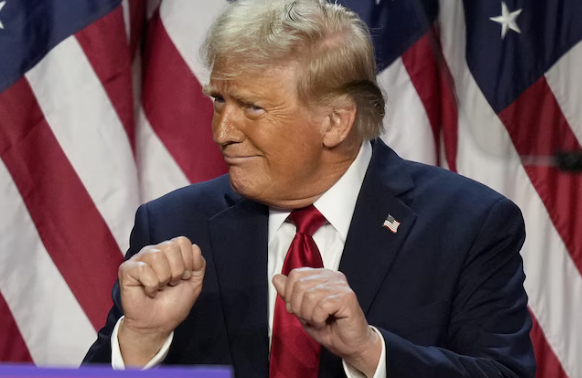Impact of Trump’s Policies on H-1B Visa Program
The H-1B visa program is crucial for American employers seeking skilled workers. With Donald Trump’s re-election on the horizon, it’s essential to understand how his policies impacted this programme during his first term. The H-1B visa allows non-immigrant workers in specialty occupations to work in the United States.
What is the H-1B Visa Program?
The H-1B visa programme permits American employers to hire foreign workers in roles that require specialised skills and at least a bachelor’s degree. The US Department of Labour states the programme aims to help employers find necessary skills not available in the local workforce. Each financial year, the US government caps new H-1B visas at 65,000, with an additional 20,000 for those with a Master’s degree from a US institution. Notably, H-1B workers at higher education institutions and non-profits are exempt from this cap.
Usage by Indian Workers
Indians make up an important portion of H-1B visa holders. In fiscal year 2023, they accounted for 72.3% of approvals, totalling approximately 279,000 visas. Chinese applicants followed with only 11.7%. The majority of H-1B visas, about 65%, were granted for computer-related occupations, with architecture and engineering receiving 9.5% and education 6%.
Trends in H-1B Approvals
The number of H-1B visa approvals has fluctuated over the years. In 2020, approvals dropped due to COVID-19 restrictions. Data from the Department of Homeland Security showed a rise from 570,368 in FY 2018 to 601,594 in FY 2019, followed by a decline to 368,440 in FY 2020. After Trump’s restrictions expired in March 2021, approvals fell further to 148,603. However, they rebounded to 410,000 in 2022 and soared to 755,000 in 2023.
Denial Rates of H-1B Applications
During Trump’s presidency, the denial rate for H-1B applications increased sharply, reaching 24% in 2018 from 6% in 2016. This rate later decreased to 4% by 2021 as many denials were successfully challenged. By 2022, the denial rate was down to 2%.
Impact of Trump’s Policies
Trump’s economic policies, termed “Trumponomics,” proposed high tariffs and immigration restrictions that could affect the H-1B programme. His administration’s focus on reducing immigration raised concerns about the availability of skilled labour in the US.
Potential Changes Under Trump 2.0
If Trump returns to office, his plans could reshape the H-1B programme. He suggested that foreign nationals graduating from US colleges should automatically receive green cards. This could benefit Indian students and ease their transition to the US workforce.
Broader Economic Implications
Trump’s policies may lead to higher inflation due to increased tariffs. This could affect global markets, including India. A stronger US economy might mean tighter monetary policy, influencing India’s financial strategies.
The upcoming presidency could lead to changes in immigration and economic policies. The implications for the H-1B visa programme and its users will be closely monitored as the landscape evolves.
Month: Current Affairs - November, 2024
Category: International / World Current Affairs







